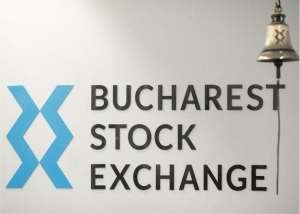• Interview with Mr. Radu Graţian Gheţea, the president of CEC Bank
Reporter: How would you describe the state of the absorption of European grants in Romania?
Radu Graţian Gheţea: According to official information, the domestic absorption rate of European grants for structural instruments is currently at 18.28%, but the effective absorption is only 7.46%. In the case of the National Rural Development Program the percentage is higher, that is, 37%. The progress is rather tepid and, despite the measures which were taken so far in order to simplify the procedures, there are still many things left to do for a sustained increase of the absorption.
Reporter: Do you feel that the absorption of European funds should be a priority for Romania at this time? Why?
Radu Graţian Gheţea: The European funds must represent a priority, since they can have a decisive contribution to the economic growth of the country. The absorption of the European funds is essential at this time, especially since Romania is about to begin the negotiations for the next financial scheduling period of 2014 2020, and the success of these negotiations would depend on the absorption rate. Lets also not forget that we are getting close to the end of the financial period of 2007 2013 and that we need to intensify the actions for increasing absorption, because we could risk of fund disengagement. We need to prove that we can effectively use the available cash, in order to receive the future amounts.
Reporter: What are the main issues which make the absorption of European grants difficult in Romania? What are the solutions which you can see for solving those issues?
Radu Graţian Gheţea: From the banks point of view, the problems which we faced concerned the oversizing of the project budgets and implicitly the inability to support the co-financing of the project using the company's own funds. It happened sometimes that the bank deemed the customer or the project as not meeting the lending requirements. It is however a certainty that all the participants in this process have encountered problems, both the entities involved in the management of the European grants and the beneficiaries. The expertise has shown that only through continuous, effective communication can feasible solutions be uncovered (for example, the introduction of the comfort letter from the bank when submitting the request for financing or the possibility of mortgaging the assets acquired using European grants).
Based on the expertise of our customers, we can mention a few solutions which could lead to a better absorption of the European grants, some of which are already included in the legislation and will be implemented. We are talking about complying with the deadlines set by the authorities (the deadlines set for launch, for evaluation, for reimbursement of the grants). Also necessary is the unification of the legislation for the structural instruments and its simplification, as well as of the documentations requested and of the applicants guides. Our customers encountered troubles in obtaining exact details concerning the applicants guides.
Another solution would be to determine a better and more effective use of the European grants would be the creation of a flexible mechanism for the reallocation of unused funds, either from one session to the next, or between the financing lines which attract a low level of interest and those which are very sought after by the potential beneficiaries.
Another would be to bolster the administrative capacities, both by hiring specialized personnel, as well as by training the staff, is very important in order to increase the absorption rate.
CEC Bank has always been open and has participated in all of the initiatives of the management authorities when it comes to finding solutions for the problems encountered in absorbing the European grants.
Reporter: What is the offer of CEC Bank of products which are adequate for those who want to access European grants? What areas are the products of CEC Bank targeting?
Radu Graţian Gheţea: Right now, the offer of the bank includes three products intended for the beneficiaries of European projects: the line of credit for investments, the loan for investments and the bridge loan. The offer also includes the letters of comfort and the letters of bank guarantee. The products are designed in such a way that they can be applied for any area of business which is eligible and apt to receive European funding, being intended for specific customers, the beneficiaries of European funds, whether they are local authorities, SMEs or Certified Public Individuals (PFA).
Aside from specialized products, CEC Bank also has specialized personnel available on this segment, which can provide information to the potential beneficiaries of European grants. Thus, our specialists offer counseling through the European Funds Offices opened in every branch, in trying to support the customers by classifying the project idea in one of the areas of financing approved by the European Commission.
Reporter: What is the level of co-financing granted by CEC Bank so far? Which area takes precedence?
Radu Graţian Gheţea: By the end of 2011, CEC Bank had financed approximately 9,807 projects eligible for accessing European grants, for which the total value of grants exceeded 2,374.52 million lei. Also, using EBRD sources, the bank financed, by the end of 2011, approximately 530 loans (the line for SMEs, the line for the rural environment, the line for streamlining energy),of approximately 117 million lei.
Reporter: What would be your advice to those looking to access European grants?
Radu Graţian Gheţea: Those who are looking to access European funds need to be responsible when it comes to completing the project they began, relying on realistic plans. While the stages of approval and contracting the projects are pretty easy to pass, the real challenge starts with the implementation of the project. The message we want to convey is that when it comes to the bank, the beneficiaries of European funds will obtain all the support which they need, as long as they are eligible for loans, they have a project which has a good foundation and is financially sustainable.
Reporter: What do you think will be the degree of absorption of the European grants by the end of 2013?
Radu Graţian Gheţea: We cant make such an estimate, as a bank. What we can say is that in the near future absorption should be sped up, to avoid ending up with withdrawals of funds and to complete the projects which have already begun. There were to lessons to learn for all of the players involved in the experiences which were had so far, which has resulted in the application of new means of action for improving the activity in this area.
Reporter: What are the segments where projects were rejected, in the case of your bank?
Radu Graţian Gheţea: Naturally, there have been cases where our bank was forced to reject loan applications, but this did not happen because of the risk of lending to a certain sector, but rather because the projects in question weren't considered bankable. But this can also happen in any sector and depends on the customers financial ability, and on how thoroughly the project is drafted. What matters is that our clients have confidence in the project, by staking their own resources, together with those of the bank.
The total value of the grants is 2,374.52 million lei.
•
"Lets also not forget that we are getting close to the end of the financial period of 2007 2013 and that we need to intensify the actions for increasing absorption, because we could have the risk of fund disengagement."
•
"Right now, the offer of the bank includes three products intended for the beneficiaries of European projects: the line of credit for investments, the loan for investments and the bridge loan. The offer also includes the letters of comfort and the letters of bank guarantee. The products are designed in such a way that they can be applied for any area of business which is eligible and fit to receive European funding".
























































